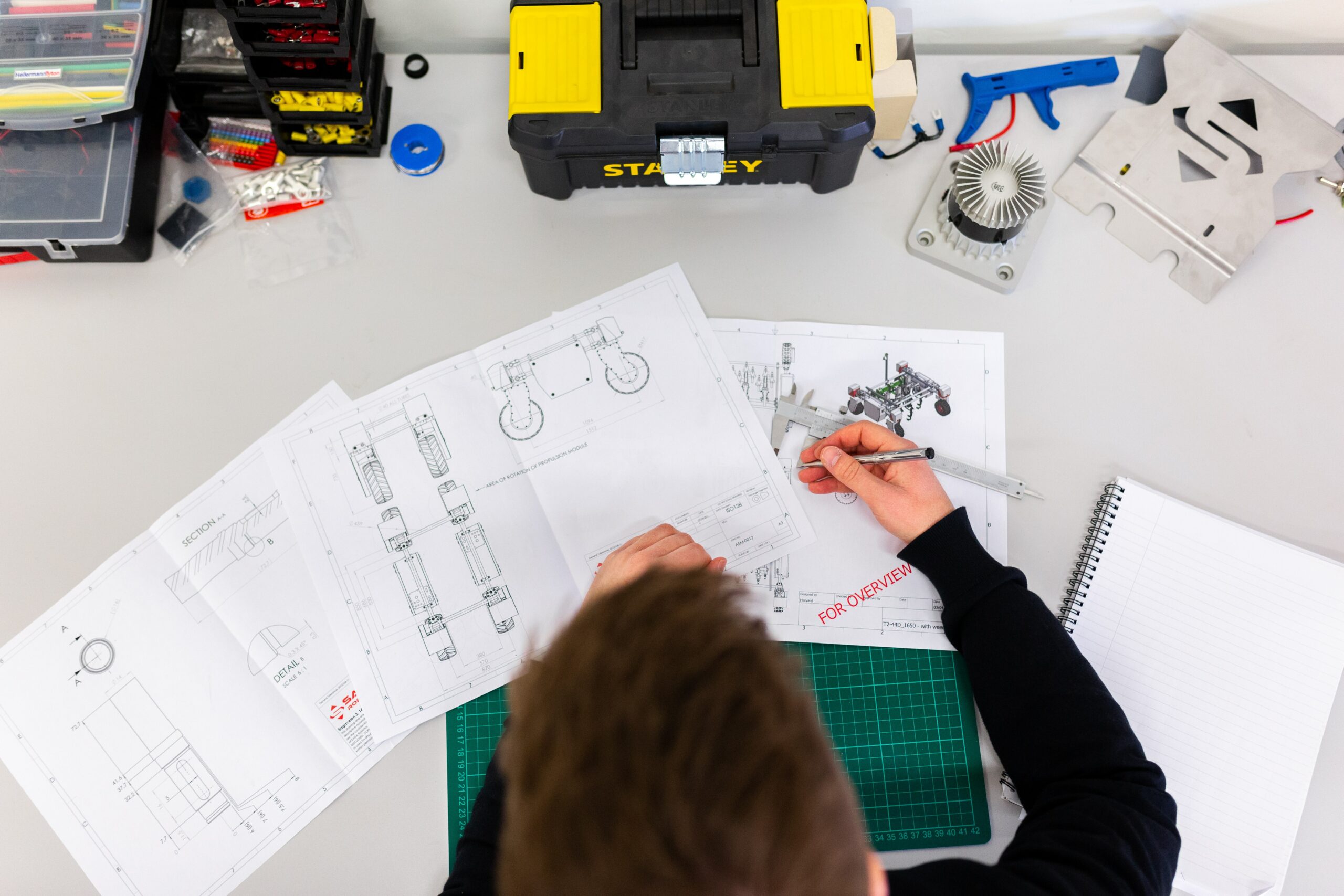
Have you ever wondered how a building seemingly from thin air becomes an inhabitable, comfortable place we enjoy every day? The end product of a functioning building is a result of well-planned analytics and design executed by mechanical, electrical and plumbing (MEP) engineers.
The field of MEP engineering is a vast one. With many avenues to take up the career ladder, MEP engineering offers a myriad of opportunities that may fit what you’re looking for. Here are a few steps to consider in the journey to becoming an MEP engineer.
Education
The first requirement of entry into the MEP engineering world is an education in a mechanical, electrical or related engineering field. A four-year degree is step one on your way to becoming an MEP engineer. A bachelor’s degree in your chosen engineering field will lead you to an Engineer-in-Training (EIT), a professional designation which opens up the potential of becoming a licensed professional engineer. Attending a university accredited by the Accreditation Board for Engineering and Technology will make the next steps much quicker.
While earning a master’s degree in engineering can offer resume and salary boosts, it isn’t necessary to begin a career in the MEP field.
Licensure & certification
Once you’ve completed your bachelor’s degree, you are eligible to test for the Fundamentals of Engineering (FE) exam to officially obtain the designation of EIT. After four years of on-the-job experience, preferably under the supervision of a Professional Engineer (PE), an EIT can qualify to take the Professional Engineer exam to obtain a PE license.
Without a degree from an accredited university, an EIT must wait eight years to take the PE exam. The PE is the most advanced license in the MEP industry; it signifies mastery in the profession and brings with it a higher level of responsibility, as PEs take on full liability and approval of designs.
The industry also has a need for Project Managers (PMs), engineering professionals who manage project designs and budgets. For this path, a Project Managers Professional (PMP) certification is recommended. According to the Project Management Institute, employers will need to fill nearly 2.2 million new project-oriented roles each year through 2027 to keep up with project demands, meaning skilled project managers are in high demand.
The requirements of the plumbing industry look somewhat different from those of mechanical and electrical licensing. To solidify your career as a plumbing designer, you can take the Certified in Plumbing Design (CPD) test. Passing this exam – the most widely accepted certification in the industry for plumbing designers – demonstrates a mastery of plumbing design. According to the American Society of Plumbing Engineers, the biggest benefit of earning a CPD certification is the value it adds to your resume and your company.
Professional development
To stay up to date on the MEP engineering industry’s ever-changing technology, procedures and processes, many states require professional development and continuing education (CE) to renew a license in engineering. These requirements can vary from state to state based on individual board guidelines.
Now what?
After you obtain a bachelor’s degree, four years of hands-on experience and a license, there are many career paths you can take to achieve your goals as an engineering professional. Our growing industry offers a variety of exciting projects for talented MEP engineers – and it’s a job seeker’s market right now, with fierce competition for talent.
We hire awesome people!
Interested in working for an MEP engineering firm that offers competitive benefits and an awesome company culture? We’re hiring! Learn more about a career at Dialectic.
Joe Hillebrenner, PE is COO of Dialectic Engineering. Founded in 1988, Dialectic is a 100% employee-owned, nontraditional mechanical, electrical and plumbing engineering firm. Recognized as one of Kansas City’s Best Places to Work in 2020, Dialectic brings buildings to life across a broad range of verticals, including distribution, multifamily, retail/restaurants, cannabis, entertainment, senior living, hospitality and charter schools/higher education. Learn more at dialecticeng.com

